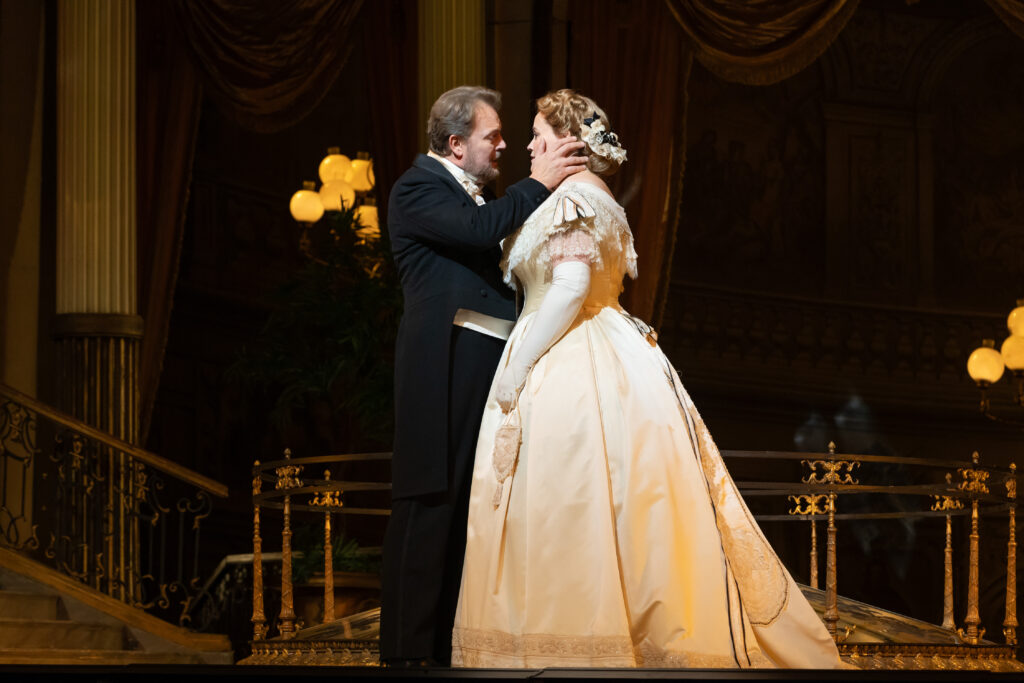
Tomasz Konieczny as Mandryka and Rachel Willis-Sørensen as Arabella – Photo: Marty Sohl / Met Opera
The Metropolitan Opera continues its Live in HD season with Richard Strauss’ lyric comedy Arabella. The production, the Met’s first revival of the opera in more than ten years, features Rachel Willis-Sørensen in her role debut as Arabella, with Tomasz Konieczny as Mandryka, the dashing count who sweeps Arabella off her feet. Louise Alder makes her Met debut as Arabella’s sister, Zdenka, and Pavol Breslik – making his Met role debut – is Matteo, with whom Zdenka is in love. Nicholas Carter conducts and Otto Schenk directs a production which, according to the New York Times “is as beautiful as one could hope”.
Richard Strauss wrote Arabella, said to be one of his most beautiful and charming works, to a libretto by Hugo von Hofmannsthal, his final collaboration with the librettist. The opera premiered at the Staatsoper, Dresden, in 1933.
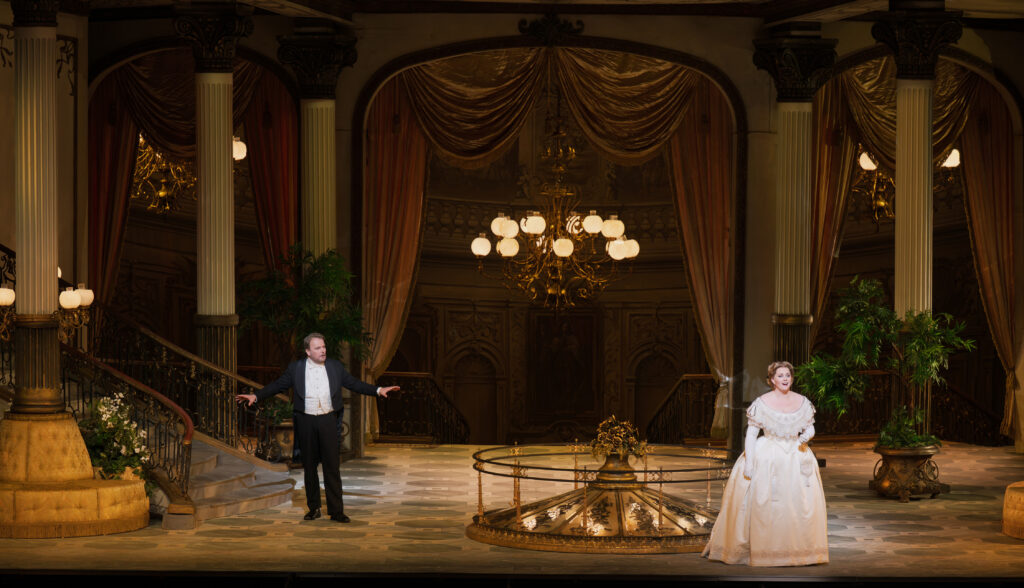
A scene from Act II of Strauss’ Arabella with Tomasz Konieczny as Mandryka and Rachel Willis-Sørensen in the title role – Photo: Jonathan Tichler / Met Opera
Arabella is set in Vienna around 1860. It tells of a fading landed gentry attempting to keep up appearances in which the heroine, Arabella, has to marry not so much for love but for an opportunity to save her aristocratic family’s fortunes. Her younger sister, who has been raised as a boy to reduce the expense of introducing two daughters into society, is hopelessly in love with one of her sister’s admirers. A succession of misunderstandings follows, and there is much confusion, but all ends well. Arabella finally is able to marry the man she loves, Mandryka – who fortunately has money as well – and her sister is able to return to her natural identity, and marry Matteo.
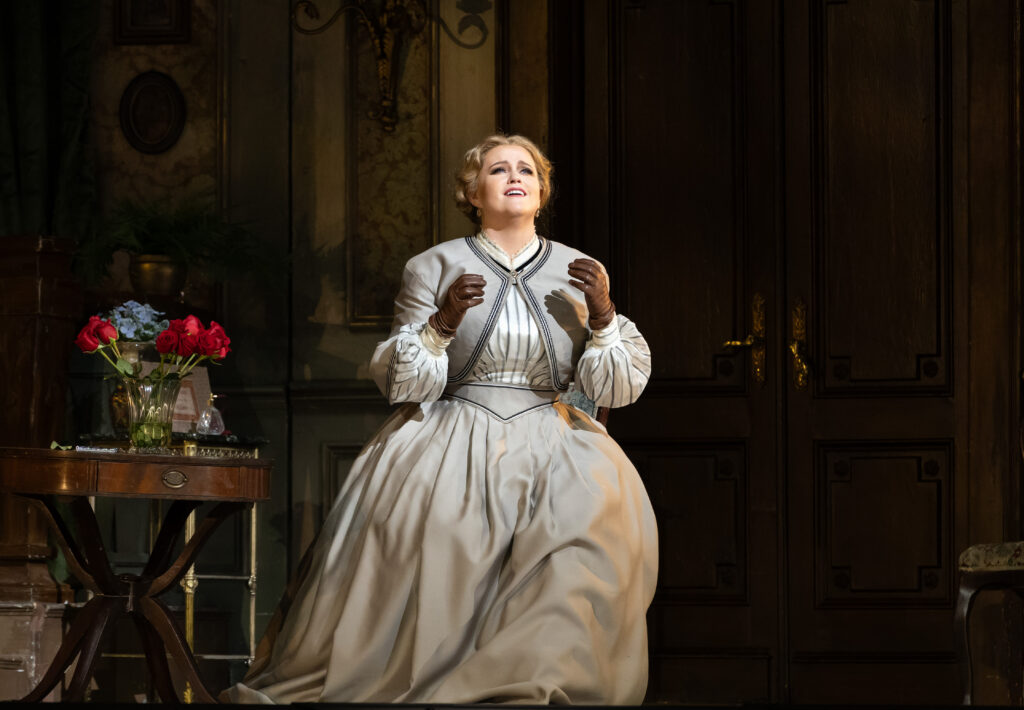
Rachel Willis-Sørensen in the title role of Strauss’ Arabella – Photo: Marty Sohl / Met Opera
Rachel Willis-Sørensen, of whom Le Monde wrote, “…the American soprano has without a doubt one of the most impressive voices in the opera world”, is known for her portrayal of Verdi heroines. She has appeared in some of the world’s leading opera houses and is a frequent guest at the Metropolitan Opera, Wiener Staastoper, and Royal Opera House, Covent Garden. This season, following her Met engagement, she returns to the Bayerische Staatsoper as Rosalinde in Johann Strauss’ Die Fledermaus, and as Leonora in Verdi’s Il trovatore at the Royal Opera House Covent Garden, she reprises the role of Violetta in Verdi’s La traviata, and appears as Elsa in Wagner’s Lohengrin at the Festspielhaus Baden-Baden.
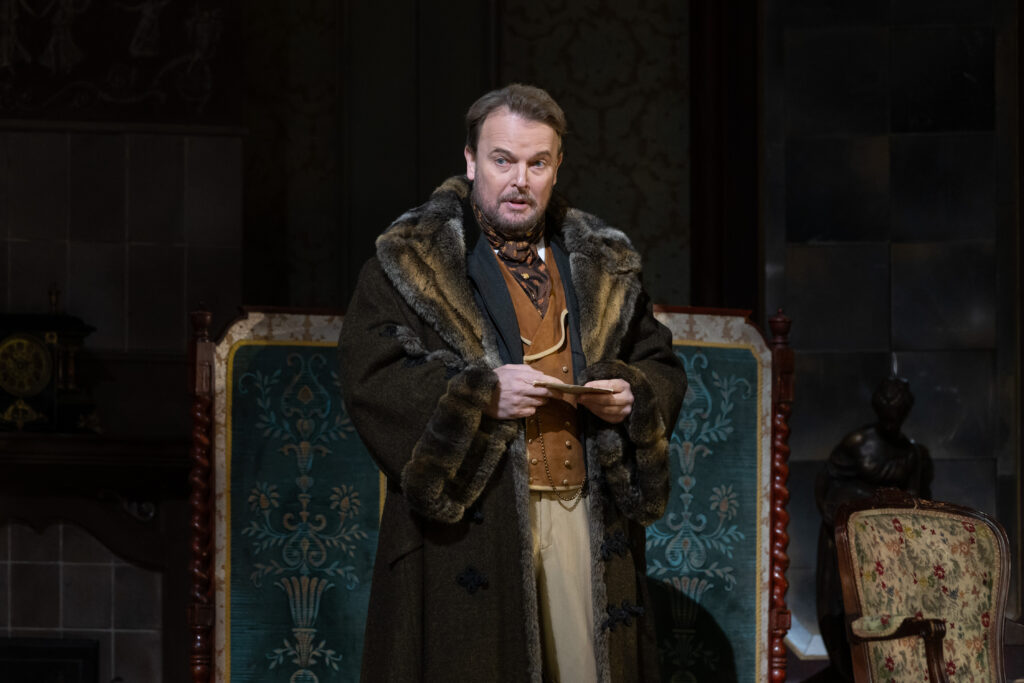
Tomasz Konieczny as Mandryka in Strauss’ Arabella – Photo: Marty Sohl / Met Opera
Polish bass-baritone Tomasz Konieczny who sings Mandryka, has most recently appeared as Wotan/Wanderer in the new Zurich production of Wagner’s Ring cycle, at the Bayreuth Festival and at the State Opera Berlin. He has also appeared in the title role of the Met’s production of Wagner’s Die Fliegende Holländer and at the Lyric Opera of Chicago, in the title role of Hindemith’s Cardillac in Vienna, as Jack Rance in Puccini’s La fanciulla del West at the State Opera Berlin and as Wotan in Wagner’s Die Walküre in Leipzig. Highlights of last season include Don Pizarro in the Met’s production of Beethoven’s Fidelio, his role debut in the title role in Mussorgsky’s Boris Godunov in Amsterdam and Wotan/Wanderer in Bayreuth.
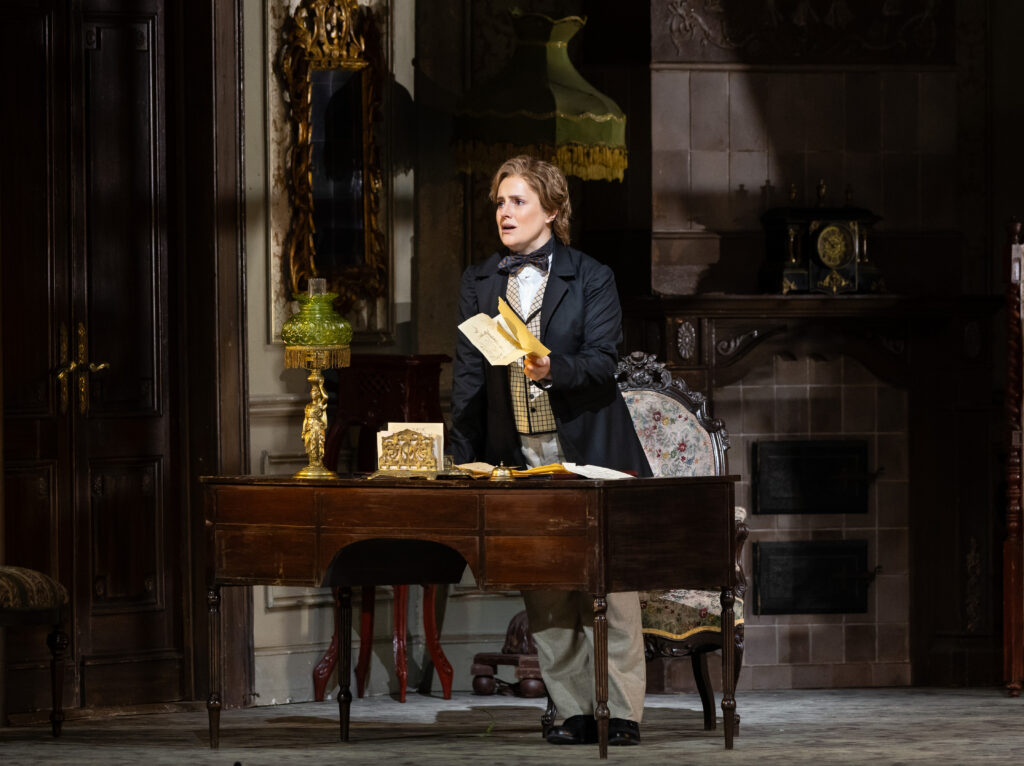
Louise Alder as Zdenka in Strauss’ Arabella – Photo: Marty Sohl / Met Opera
In her Company debut, British soprano Louise Alder takes the role of Zdenka. Regarded as one of the most in demand artists today, Ms Alder, according to The Times, has established herself as ‘a terrific talent, combining a big lustrous voice with flawless intonation and a keen intelligence”. Following her appearance in Arabella, she will appear in recital with Joseph Middelton at Garsington Opera, before taking maternity leave until March, when she’ll perform with Symphonieorchester des Bayerischen Rundfunks in Mahler’s Symphony No 2 and Brahms’ German Requiem at Teatro Petruzzelli in Bari.
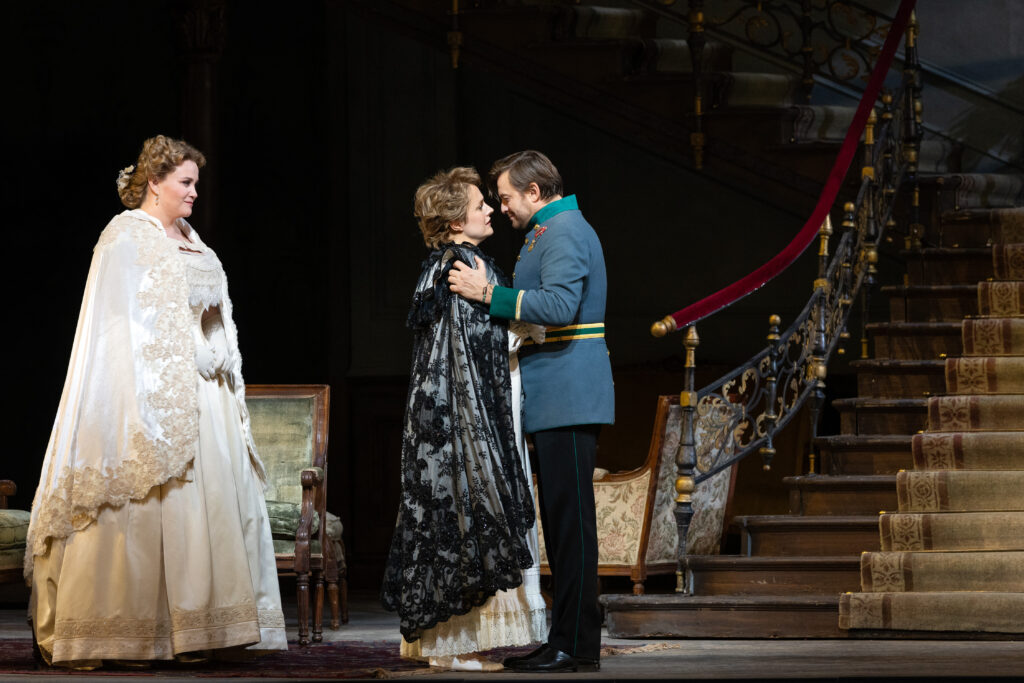
Rachel Willis-Sørensen as Arabella, Louise Alder as Zdenka, and Pavol Breslik as Matteo in Strauss’ Arabella – Photo: Marty Sohl / Met Opera
Slovakian tenor Pavol Breslik returns to the Met for the first time since 2019, in his Met role debut of Matteo. He has been described by Sueddeutsche Zeitung as having “… an imposing appetite for risk, a heroically intensified timbre and elegantly belcantoesque voice leading, particularly impressive!”. This current season sees him appear in recital with the Janacek Philharmonic in Ostrava and with the Philharmonie Bratislava performing Chausson’s Poème de l’amour et la mer, following which he’ll appear in Johann Strauss’ Die Fledermaus at the Staatsoper München and a programme of music by Berlioz with the Orchestre de l’Opéra de Toulon
Also in the cast are Julie Roset, making her Company debut as the Fiakermilli, Karen Cargill as Countess Adelaide Waldner and bass Brindley Sherratt Count Waldner – both making their Met role debuts.
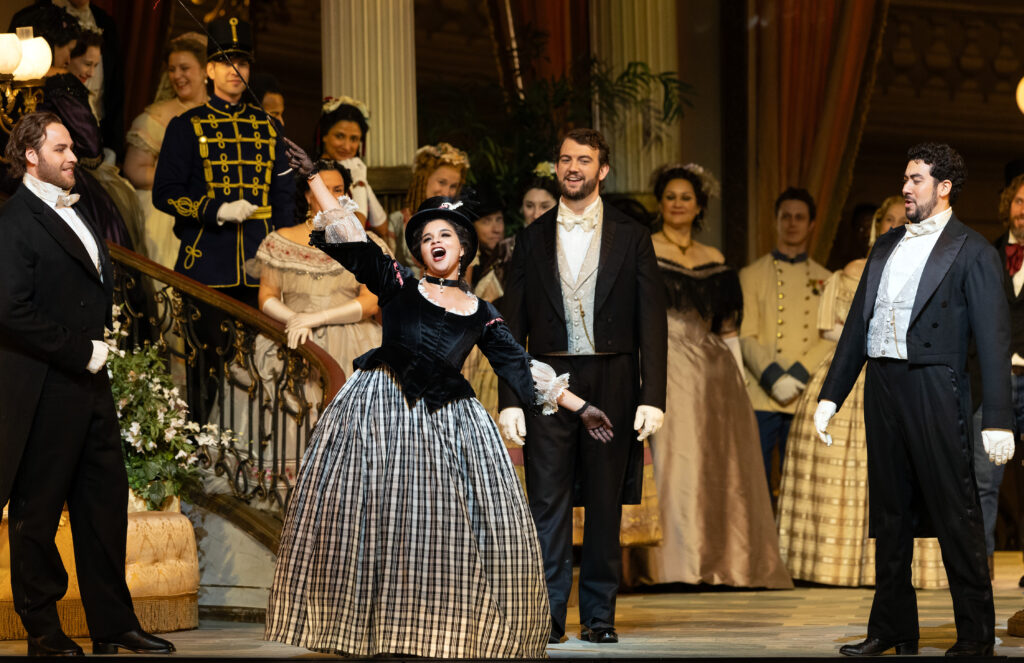
Evan LeRoy Johnson as Count Elemer, Julie Roset as the Fiakermilli, Ben Brady as Count Lamoral, and Ricardo José Rivera as Count Dominik in Strauss’ Arabella – Photo: Marty Sohl / Met Opera
Gary Halvorson will direct the Live in HD presentation for cinemas, and bass-baritone Ryan Speedo Green will host the transmission, sharing exclusive behind-the-scenes content and interviews during the intermissions.
The Set Designer is Günther Schneider-Siemssen, costumes are by Milena Canonero and lighting by Gil Wechsler.
Nicholas Carter, following his 2022 Met debut with Thomas’ Hamlet and performances of Britten’s Peter Grimes later that year, leads the Metropolitan Opera Orchestra and Chorus in a Live in HD production of Richard Strauss’ Arabella at more than 1,800 cinemas worldwide on November 22nd. For more information and to find your nearest cinema, visit the Metropolitan Opera website. The opera is sung in German, with Met Opera titles in English, German and Spanish.
The 2025–26 Live in HD season continues with Giordano’s Andrea Chénier (December 13), Bellini’s I Puritani (January 10), Wagner’s Tristan und Isolde (March 21), Tchaikovsky’s Eugene Onegin (May 2), and Gabriel Lena Frank’s El Último Sueño de Frida y Diego (May 30).
Information sourced from:
Met Opera program notes
Artists’ websites

Leave a Reply